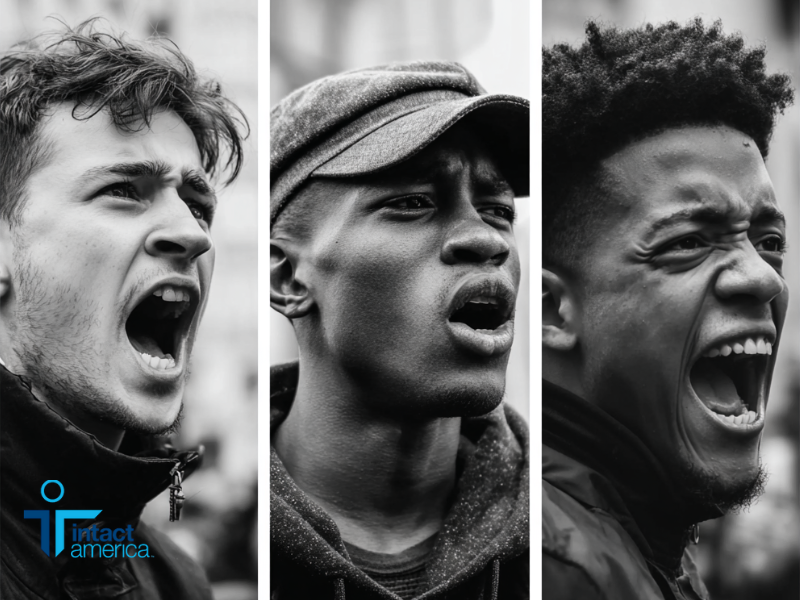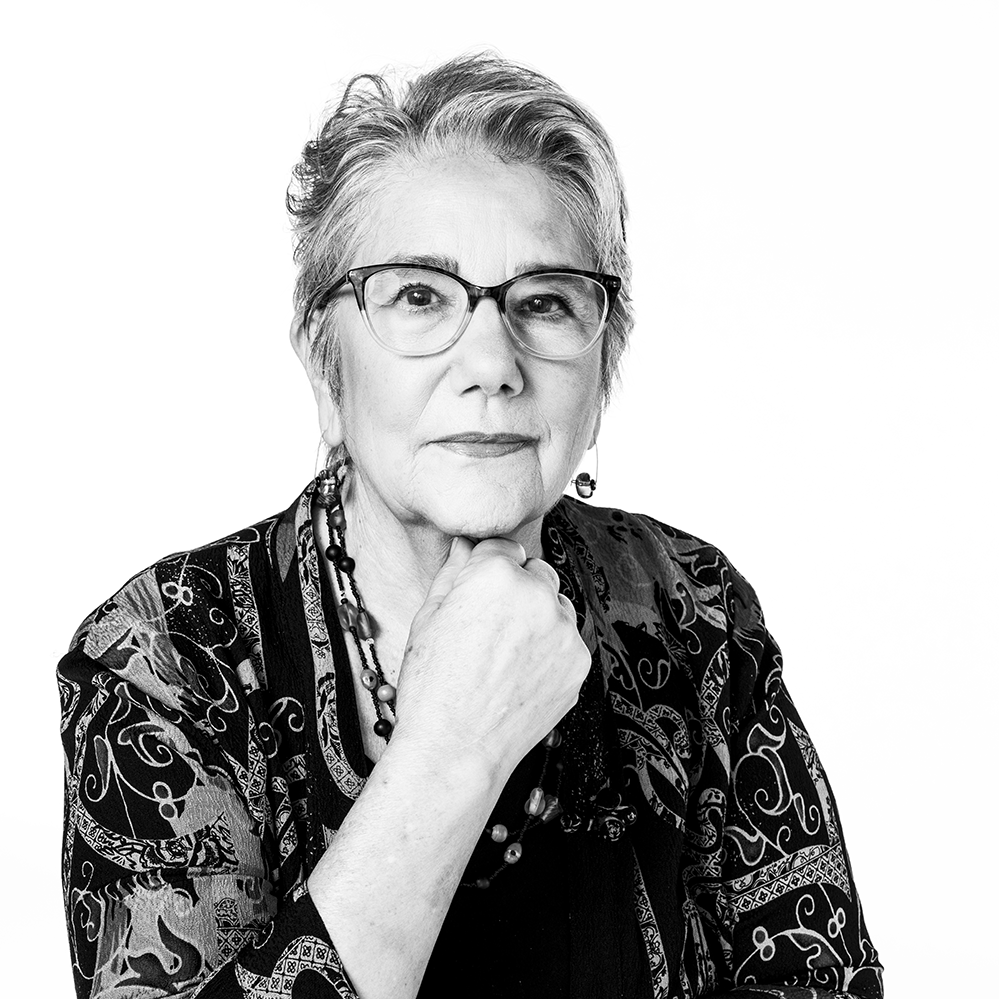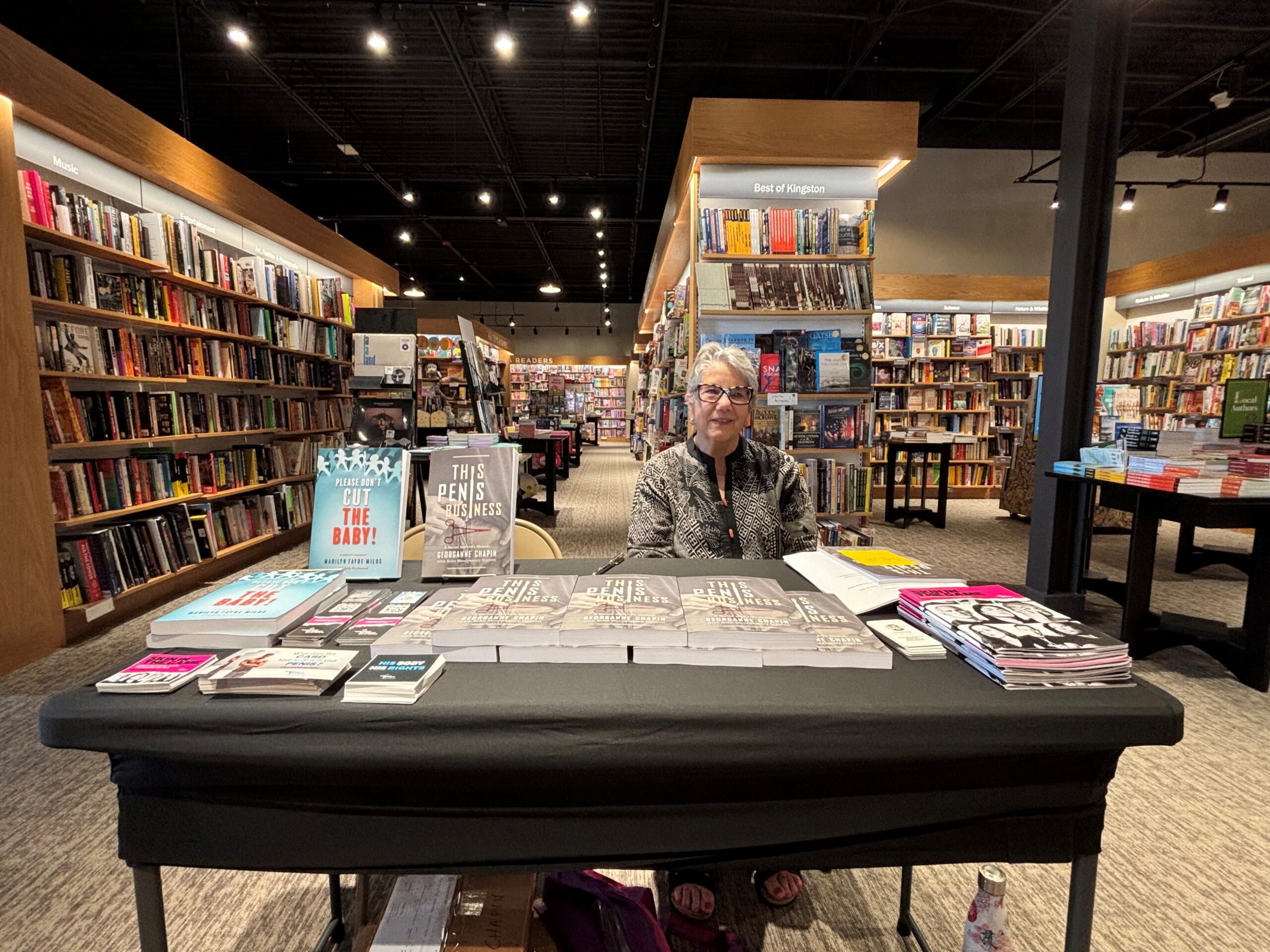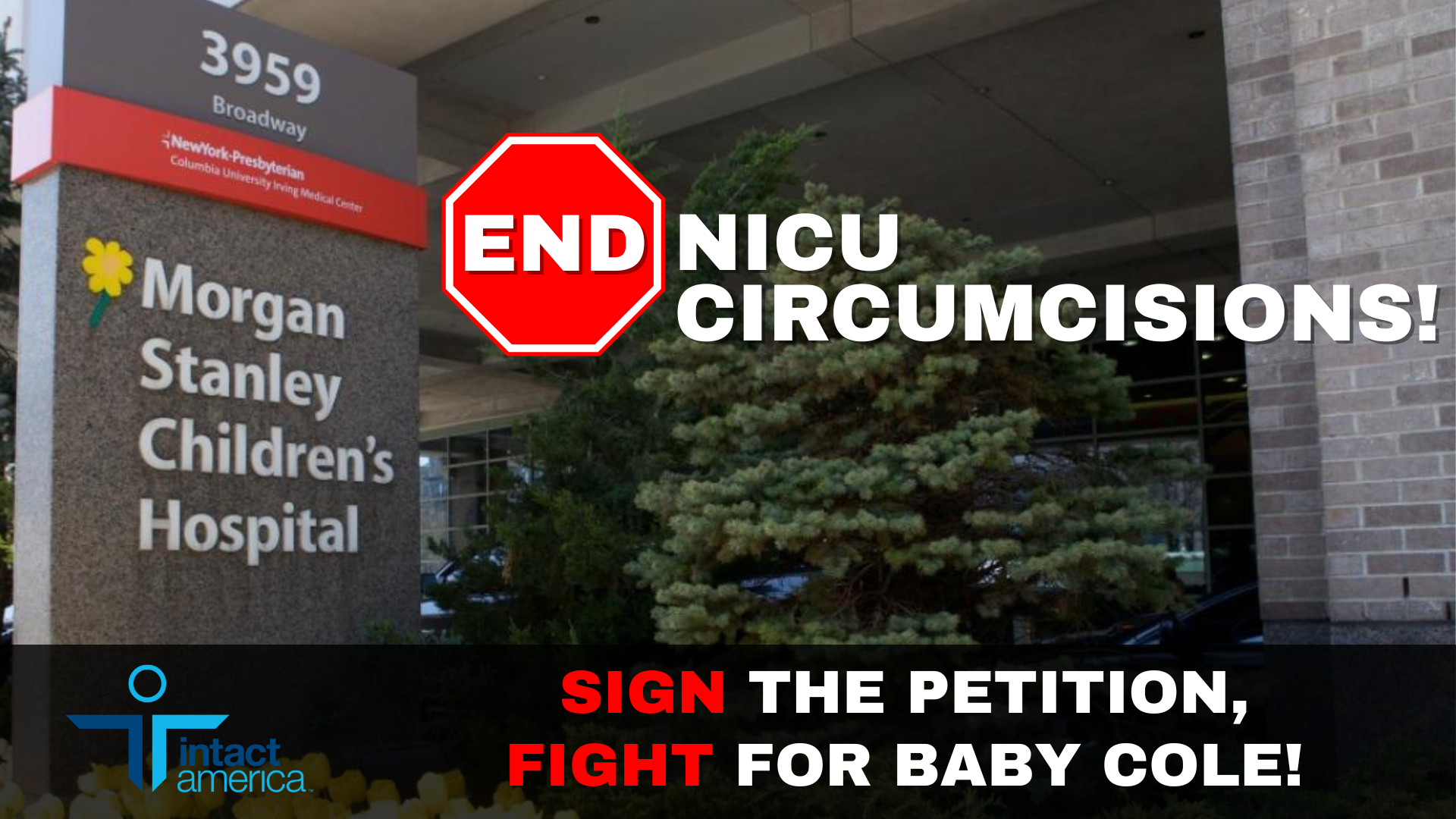Slightly edited version of essay published in Huffington Post 05/03/2017 01:26 pm ET
By: Georganne Chapin, MPhil, JD, Executive Director, Intact America

On April 13th, a Detroit doctor was arrested and charged with the Federal offense of removing parts of the genitals of two young girls. Meanwhile, doctors across the United States remove part of the genitals of 3,000 baby boys every single day.
How is that different?
It’s not. Too many people who object to cutting little girls have no qualms about cutting baby boys. The simple truth is that no child born with healthy genitalia should have any part of them cut, permanently altered, or painfully removed—no matter what gender they are.
I remember the first time I heard about female genital mutilation, or FGM as it’s often labeled. I was in my 20s, and not yet married or a mother. I immediately thought, “But we do the same thing to boys…, and call it by its euphemism — ‘circumcision’.”
Maybe if we called it male genital mutilation, more people would understand what it actually entails—binding the arms and feet of a newborn boy, using a metal probe to forcibly tear his foreskin from his glans penis, clamping that foreskin, and then cutting it off with scissors or a scalpel. Sometimes doctors cut off too much (causing complications too gruesome to mention here); sometimes they cut unevenly. Follow-up surgeries to correct errors and functional impairments are common. That’s no surprise. Surely, it is hard to operate on the genitals of a bucking, screaming child.
‘I Heard the Most Terrible Cries.’
Read what Elise Carin Wicklund, a mother in Parrish, Florida, wrote after she was told by her baby’s pediatrician that her weeks-old son would feel only a few seconds of discomfort.
“I heard the most terrible cries. The nurse brought me my screaming baby. They hadn’t even been able to put his onesie on all the way. He wouldn’t look at me. He wouldn’t nurse. For a long time, when I changed his diaper, he screamed.”
Without a doubt, that doctor is still out there cutting little boys. Compare this to the case of Jumana Nagarwala, a Johns Hopkins-trained female physician, charged with genital cutting of minor girls.
“Despite her oath to care for her patients, [Dr. Nagarwala] is alleged to have performed horrifying acts of brutality on the most vulnerable victims,” said Acting Assistant Attorney General Kenneth A. Blanco in a news release announcing the arrest.
Nagarwala’s case, the first to be filed under 18 U.S.C. 116, the Federal law that criminalizes female genital mutilation, has opened the eyes of many Americans, who are shocked that FGM is practiced on our soil. Perhaps it’s time they think more about what doctors routinely do to little boys.
As for the alleged health benefits of male circumcision, suffice to say that Great Britain, Europe, Australia, and other Western countries do not circumcise their boys or men, and their rates of AIDS/HIV, cervical cancer and penile cancer are comparable to or lower than ours.
The truth is that Americans circumcise their boys for the same reason other cultures circumcise their girls. We need to recognize that only tradition, bias and politics make the one okay, and the other abhorrent. Let’s acknowledge that all children deserve equal justice.








Edward von Roy
May 10, 2017 11:34 am“Be a hero, don’t circumcise your daughter or son.”
My real concern is that the US and Europe will soon legalize some “mild” forms of the Classification of female genital mutilation (FGM). Every form of FGM should be banned everywhere.
“Female genital mutilation comprises all procedures involving partial or total removal of the external female genitalia or other injury to the female genital organs for non-medical reasons (WHO, UNICEF, UNFPA, 1997).”
Classification of female genital mutilation
http://www.who.int/reproductivehealth/topics/fgm/overview/en/
There’s no such thing as ‚mild‘ FGM.
Zero Tolerance to Female Genital Mutilation (FGM) =
zero tolerance even to the less invasive forms of FGM
Any ritual circumcision or other ritual injury of the genital of a girl or a boy below the age of eighteen years should be banned on a global level.
Edward von Roy (social worker)
Karl Hegbloom
May 14, 2017 5:20 pmhttp://karlhegbloom.blogspot.com/2016/03/take-care-clause-and-fundamental-right.html
Yolanda D. Zapatero
September 3, 2017 11:39 amA new danger for a child’s intact genitalia: Talking of the “Gillick-competent child”
“Fully informed, Gillick-competent individuals (male, female, or intersex) should be allowed to choose NGC for themselves, if they wish, under conditions of valid consent.”
http://euromind.global/en/brian-d-earp-and-rebecca-steinfeld/
::
A new danger for global intactivism: Talking of the “Gillick-competent child”
Kommentare von Jacques Auvergne (2017). UPDATE: Earp reagiert, Auvergne antwortet.
Kindeswunsch auf Beschnittenwerden auch für Mädchen bald Gesetz?
Britischer Medizinethiker fordert das verstaatlichte Befragen des männlichen oder weiblichen Kindes nach dessen baldiger Genitalverstümmelung (MGM oder FGM)
(…) Individualrechte versus Gruppenrechte – hat der 18 Jahre alt gewordene männliche oder weibliche Mensch das Recht auf einen intakten Körper, insbesondere auf ein intaktes Geschlechtsorgan? Wir Intaktivisten spalten die Schülerschaft eben nicht auf in Christenkinder, Judenkinder, kleine Muslime oder kleine Atheisten, sondern fordern: Keine Beschneidung unter 18 Jahren. (…)
Westliche Medien (in the Western media), gibt es für Earp auch Eastern media, Oriental media, Islamic media? Wie es in den Siebziger Jahren schon Ali Schariati betrieb, versucht der Multikulturalist und Kulturkreistheoretiker Brian D. Earp die eine Welt mit ihren unteilbaren allgemeinen Menschenrechten aufzuspalten in Okzident und Orient.
Earp, der als Fachmann für Ethik zwischen Atheistenkind, Judenkind, Christenkind und Muslimkind gerade nicht hätte unterscheiden dürfen (…)
https://jacquesauvergne.wordpress.com/2017/08/28/475/
Pingback: Double Standard: Male Genital Mutilation OK, but Female Genital Mutilation WRONG – Gender Studies in Men's Rights & Feminism
January 4, 2018 8:39 pm